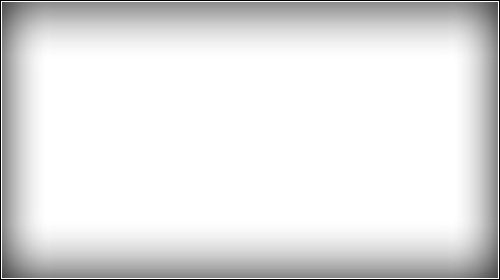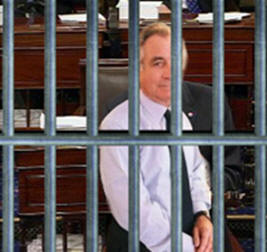
Hedge Fund Due Diligence
Most Hedge Fund scandals would be avoided with proper due diligence performed by experienced managers.
What's New:
More Educational Content coming soon
 More educational content
to come. Sujects include double taxation of bonds and corporate governance.
More educational content
to come. Sujects include double taxation of bonds and corporate governance.
April 19, 2012: Death of a great investment counselor, Carl H. Otto
Updated: April 20, 2012
Madoff

The largest fraud ever masterminded was by Bernie Madoff in what is known today as the Madoff’s Ponzi scheme. Investors lost over $17Billion. With the fake return on their investment, their lost totaled well over $50 Billion (some mention $65 Billion). Hundreds of investors lost including wealthy investors and very large institutions like:
Tremont Group | $3.3 B | |
Banco Santander | $2.9 B | |
Bank Medici | $2.1 B | |
Ascot Partners | $1.8 B | |
Access International | $1.5 B | |
Fortis | $1.4 B | |
HSBC | $1.0 B | |
Union Bancaire Privee | $0.7 B | |
Natixis SA | $0.6 B | |
Royal Bank of Scotland | $0.5 B | |
BNP Paribas | $0.4 B | |
BBVA | $0.4 B | |
Man Group | $0.4 B | |
Nomura | $0.4 B | |
Auriga | $0.3 B | |
Reichmuth | $0.3 B | |
Maxam Capital Management | $0.3 B | |
EIM SA | $0.2 B |
- Madoff was the broker, custodian and investment manager. This should be a complete “NO GO” of any due diligence. This allowed him to generate fake trading confirmations. Simple checks would have confirmed that those fake trades didn't match the footprint of his trading in the market. The monthly account statements received by clients showed numerous trades that were purportedly executed at a price outside the daily price range.
- Peter Madoff, Madoff's brother, was the chief compliance officer.
- Madoff's firm used the small accounting firm Friehling ∧ Horowitz based in New City, NY, which reportedly had offices in a strip mall and had only three employees, including a secretary, an accountant and a partner in his seventies who lived in Florida. It appears that one of the partners in the small accounting firm was Madoff’s brother-in-law.
- The May 7, 2001 edition of Barron’s, published an article suggesting fraud: “Don’t Ask, Don’t Tell; Bernie Madoff is so secretive, he even asks his investors to keep mum”.
- A simple strategy, easy to backtest, that showed a risk-return profile very different from what the fund delivered. Nothing like the performance claimed by the fund.
- 96% of the months were up! His performance was too good to be true. Such track record is so suspicious that it deserved detailed audit.
- Option’s liquidity could never handle the trade size required by his fund.
- Lack of Account Transparency: If investors questioned Madoffs opaque and undisclosed investment methodology, Madoff would threaten them with removal from his funds.
Because it was not possible to conduct a third party audit, Madoff did not pass the due diligence of many investors. Some investors had identified Madoff as a potential fraud. Some of the firms which invested in Madoff’s funds explained that they were lured by the performance of the funds! Furthermore, they were also attracted by the fact that Madoff would not charge the usual 1%/20% which the feeder funds would charge for themselves. They never wondered why Madoff would not charge such well-deserved fees on great performance! In a court case, it was shown that one of the largest investor never inquired on how “Madoff supposedly earned money”. More than 325 funds of funds (2/3 based in Europe) benefitted from this extra source of income. This is a clear lack of due diligence.
In their marketing material and on their web site, one of the largest investor in Madoff mention:
Intensive Due Diligence is vital to ensuring the integrity and sustainability of the investment process. Each investment undergoes lengthy and detailed scrutiny according to clearly defined manager selection criteria. We apply a disciplined, process-driven approach aimed at minimizing operational and reputational risk, and ensuring that we pick only the very best investment talent.
...
Once a fund has been earmarked as a potential investment our analyst teams thoroughly research, analyze and evaluate it. In addition to rigorous scrutiny of the hedge fund's investment process, we conduct a thorough operational review. Only once a fund has passed through this process can it be approved for inclusion in a portfolio.
Right! Their marketing is all great but the truth is - they did NOT do their due diligence. Their 2005 Due Diligence questionnaire was signed by a young inexperienced analyst. Funds of funds are very often staffed by young recruits with no investment management experience. Did FOF which invested in Madoff really understand the simple options collar strategy supposedly used by Madoff? Did they question the positive performance in periods where it should have done poorly? (like in down markets) Some invested a large percentage of their assets in Madoff – did they understand that diversification is part of any sound investment strategy?
Madoff was not a hedge fund
Madoff was not a hedge fund – Bernie Madoff did not see himself as running a hedge fund. The Split-Strike Conversion Strategy used by Madoff (which is really a simple options collar strategy) has nothing to do with hedge fund strategies and has a return pattern correlated to the market. He was instead managing accounts for investors inside his own securities firm. The 325+ FOF which invested in his strategies were setup as hedge funds – unfortunately without minimal real due diligence and focused only on the fake returns and the absence of fees.
Cheap greedy behavior!
For more information on how to detect fraud, please contact us.
Dominic Clermont, ASA, MBA, CFA





